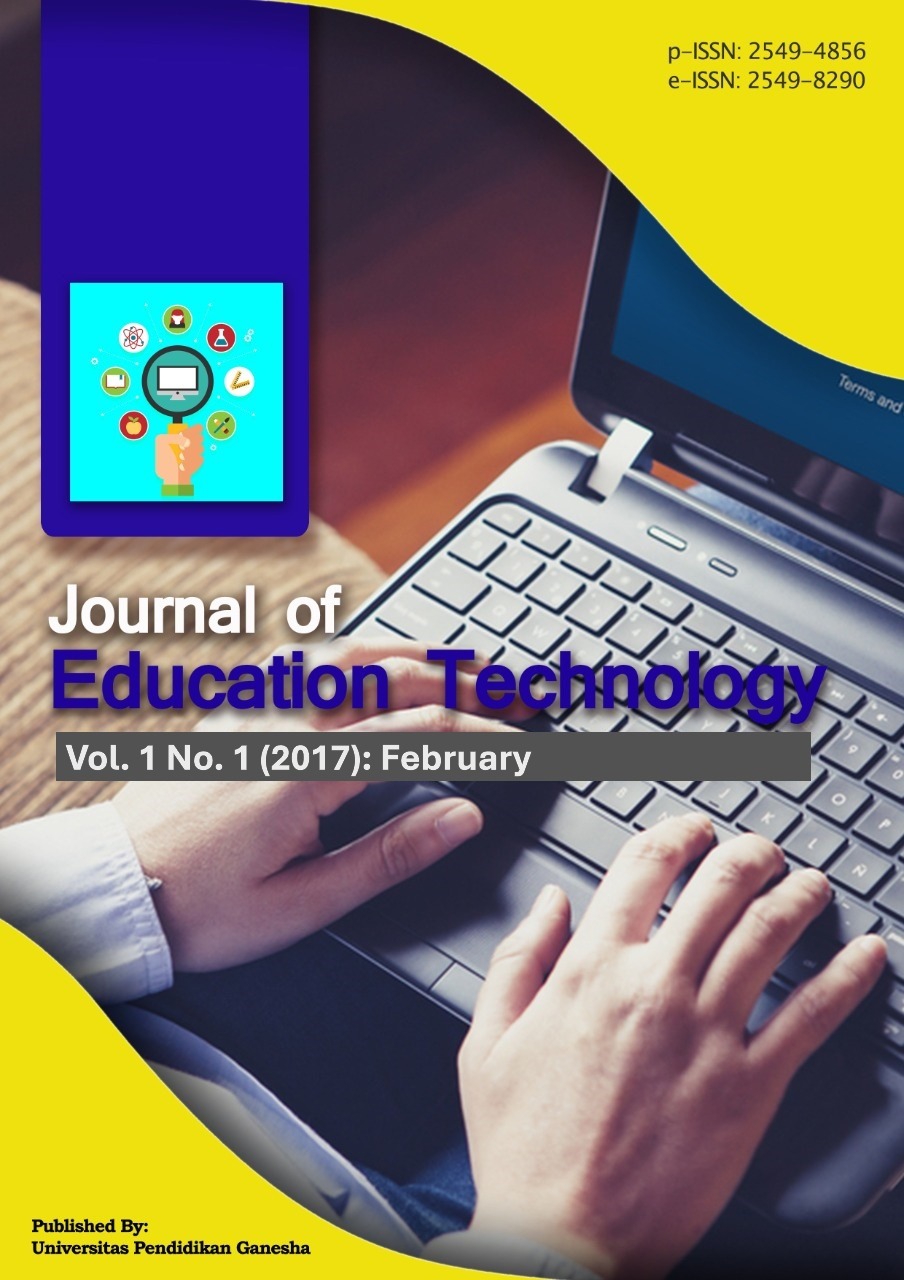MOTIVATION AND LEARNING ACHIEVEMENT IN NATURAL SCIENCE SUBJECT OF THE FIFTH GRADERS OF ELEMENTARY SCHOOL: A CORRELATIONAL STUDY
DOI:
https://doi.org/10.23887/jet.v1i1.10084Keywords:
learning, motivation, achievement, natural scienceAbstract
This study aims to find out the degree of correlation between students motivation and students’ learning achievement in natural science subject. The sample are selected through cluster random sampling by selecting 40% of all fifth graders in elementary schools in Golewa sub district, Nusa Tenggara Timur, Indonesia. There are two instruments used to collect the data namely questionnaire about motivation and achievement test. The test consists of 22 items of multiple choice and the questionnaire consists of 20 questions. From the hypothesis testing, it is gained that the rxy = 0.899 which then being compared to the rtable with 5% of significance level and results in rtable= 0,320. Thus, since rxy> rtable or 0.899>0.320 the H1 is accepted. The degree of correlation between students’ motivation and the natural science learning achievement is r= 0.90 with 81% of determination coefficient. In conclusion, there is a high correlation between students’ learning motivation and the natural science learning achievement.
References
Djaali. (2011). Psikologi Pendidikan. Jakarta. Bumi Aksara.
Uno, H.B. (2009). Teori Motivasi dan Pengukurannya: Analisis di bidang Pendidikan. Jakarta. Bumi Aksara.
Hamalik, O. (2009). Kurikulum dan Pembelajaran. Jakarta. Bumi Aksara.
Margono. (2004). Metodologi Penelitian Pendidikan. Jakarta. Rineka Cipta.
Sudjana, N. (2004). Penilaian Hasil Proses Belajar Mengajar. Bandung. PT Remaja Rosdakarya
Sugiyono. (2002). Statistik untuk Penelitian. Alfabeta. Bandung
----------------. (2013). Metodologi Penelitian Pendidikan. Bandung. Alfabet
Tanzeh, A. (2011). Metododogi Penelitian Praktis. Yogyakarta. Teras.
Downloads
Published
How to Cite
Issue
Section
License
Authors who publish with the Journal of Education Technology agree to the following terms:
- Authors retain copyright and grant the journal the right of first publication with the work simultaneously licensed under a Creative Commons Attribution License (CC BY-SA 4.0) that allows others to share the work with an acknowledgment of the work's authorship and initial publication in this journal.
- Authors are able to enter into separate, additional contractual arrangements for the non-exclusive distribution of the journal's published version of the work (e.g., post it to an institutional repository or publish it in a book), with an acknowledgment of its initial publication in this journal.
- Authors are permitted and encouraged to post their work online (e.g., in institutional repositories or on their website) prior to and during the submission process, as it can lead to productive exchanges, as well as earlier and greater citation of published work. (See The Effect of Open Access)
















